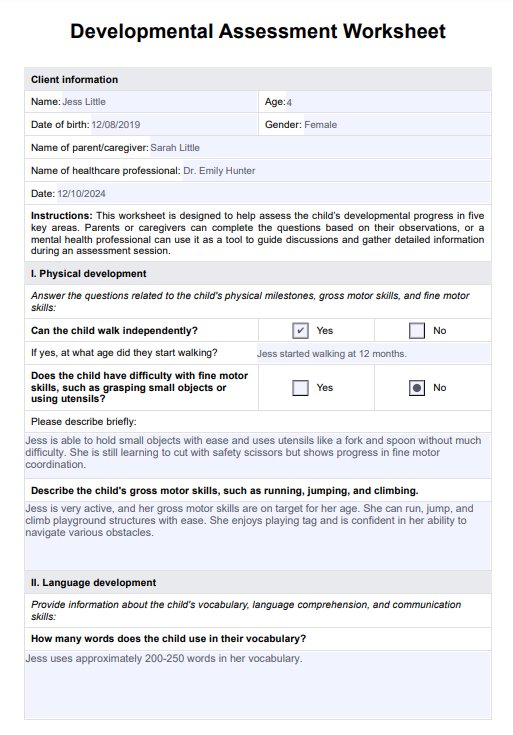Healthcare professionals, such as pediatricians, psychologists, and therapists, use a Developmental Assessment to evaluate a child's progress. Parents and caregivers also contribute by sharing their observations of the child’s behavior and growth.

Developmental Assessments
Use this Developmental Assessment worksheet as a supplemental tool to facilitate discussions and better understand the child’s developmental progress.
Developmental Assessments Template
Commonly asked questions
Developmental Assessments are used during regular check-ups or when there are concerns about a child's development. They are essential during key stages of growth, such as children ages birth to early childhood.
Parents or caregivers can identify children at risk for developmental delays by observing if the child is not meeting his or her developmental milestones, such as language, motor, or social skills, at the expected age. If concerns arise, seeking professional advice early can help address potential delays and support the child's development.
EHR and practice management software
Get started for free
*No credit card required
Free
$0/usd
Unlimited clients
Telehealth
1GB of storage
Client portal text
Automated billing and online payments











